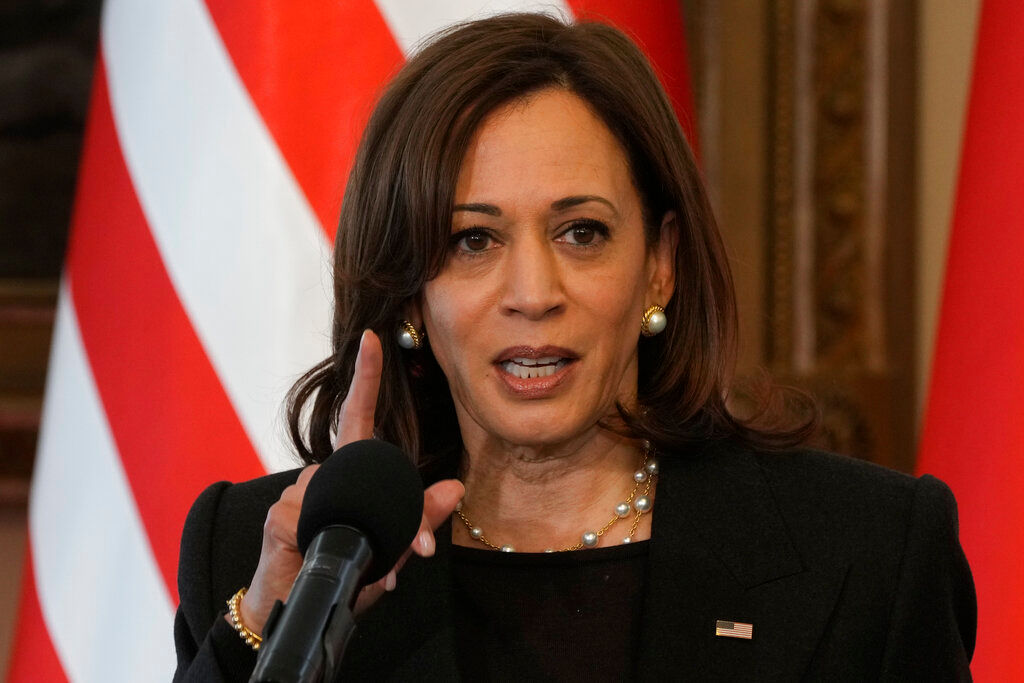Less than a week after his meetings with US President Joe Biden, Chinese President Xi Jinping and US Vice President Kamala Harris had a brief meeting at a summit in Bangkok on Saturday, according to a US official.
Harris reiterated Biden’s point that “We must have open lines of communication to responsibly manage the competition between our countries,” as per The Strait Times.
Also Read| California Governor Gavin Newsom to release $1 billion for homelessness, with conditions
Biden and Xi agreed to resume dialogue across a range of sectors during a three-hour meeting on the sidelines of the Group of 20 (G-20) summit in Bali, Indonesia.
Both governments have attempted to repair strained relations over issues such as Taiwan, human rights, and technological limitations. While those issues remain unresolved, the shift in tone has helped Chinese stocks and the yuan.
According to a White House official, Harris spoke with the Chinese leader as they entered a retreat in Bangkok for the Asia-Pacific Economic Cooperation (APEC) summit.
After North Korea conducted a ballistic missile test on Friday, which according to US and Japanese officials was capable of hitting the US mainland, the United States stated it wanted China to do more to restrain its ally. This prompted the meeting.
Also Read| Georgia Senate runoff election 2022: Judge allows early voting on Saturday after Thanksgiving
Xi, who is only travelling abroad for the second time since the outbreak, has met with numerous foreign leaders in Bangkok and earlier this week at a summit of the Group of 20 in Bali.
The first in-person discussions between the heads of the two biggest economies in the world since they both took office took place on Monday during a three-hour meeting between Xi and Biden at a hotel on the Indonesian tourist island.
Both sides gave the meeting a positive spin by saying they wanted to work together on issues like climate change and stop recent tensions from getting out of hand.
The Biden-Xi summit and the quick meeting with Harris occur before Secretary of State Antony Blinken’s anticipated trip to China early in 2019, which will be his first as top US diplomat since 2018.
Also Read| Elon Musk: New Twitter policy is freedom of speech, but not freedom of reach
In order to make a strong denunciation of North Korea, Harris also convened crisis discussions on Friday over Pyongyang’s most recent launch with the prime leaders of five US allies: Japan, South Korea, Australia, Canada, and New Zealand.
“We do believe Beijing has a role to play,” said a senior US official accompanying Harris on Friday.
According to the official, China should use its influence to persuade North Korea “not to go in this provocative direction, which only destabilises the region and the world.”
Tensions between the United States and China have risen, particularly over Taiwan, Beijing’s self-ruling democracy.
After House Speaker Nancy Pelosi, who is second in line to the White House, paid a solidarity visit to Taiwan in August, China conducted extensive military drills that were viewed as a practise invasion.
Also Read| Twitter locks staff out of offices until next week, UK trade union raises concern: Report
Support for Taiwan was a red line, according to Xi, who spoke to Biden. In a later interview with reporters, Biden stated that the two leaders had a mutual understanding of one another’s viewpoints and that he had not heard of any “imminent” invasion of Taiwan.
Additionally, the US has put pressure on China to restrict its assistance to Russia in its invasion of Ukraine, and US officials are cautiously optimistic that Beijing hasn’t delivered any weapons.






